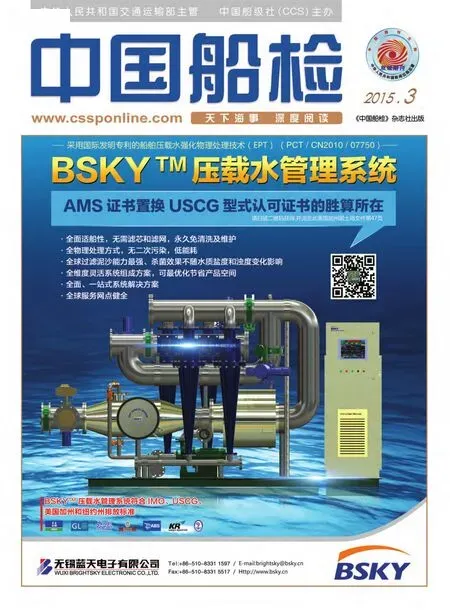Three Diffciulties and Risks in Transforming Bulk Carrier to Tanker
2015-05-10ReporterXuHua
Reporter Xu Hua

The order to transform bulk carrier to tanker is often reported in newspapers. Then is it wise to transform bulk carrier to tanker? Instead of taking opposite positions, ship owners and ship yards have similar views and they will go along with each other for most of the times. The gloomy operation in the bulk carrier market last year together with and surplus bulk carrier orders have caused cancellation of lots of orders, with some ship yards having even experienced multiple successive cancellations. Such experience has not only cost the shipyard modest profits, it also made it uncertain for the shipyard to offset the investment in purchasing equipment with the deposit. let alone the waste of the capital invested by the shipyard due to loss of construction period.Therefore, shipyard should consider the risk of order cancellation under the condition of depressed bulk carrier market. If the bulk carrier to tanker transformation plan could be finished within the original construction period, and the material or mechanical equipment, especially the main and auxiliary engine originally ordered can still be used, then redesign and plan approval will not have great effect on the production plan. With the stimulus of appropriate extra profits, and after sufficient assessment and calculation of the construction design, welding technology, equipment erection test, flaw detection and tightness test, special quantities of coating, tanker auxiliary equipment, tanker auxiliary mooring test and navigation test, the ship yard can be positive to such transformation orders. Ship owners would surely face even bigger investment risks and should consider carefully if there would be problems concerning compliance with major requirements of international conventions, or the qualification of the ship yard to build tankers is insufficient.
For ship owners with transformation intention, the tanker market is relatively more regulated than the bulk transportation market. However, the ship owner should consider whether the market will be still good after the transformation, and more importantly, the ship owner should communicate with the oil companies they will cooperate in the future, so that the lease of the tanker after delivery can be guaranteed. At the same time,the ship owner should re-negotiate with the financing banks, revise investment plan and ensure that the financing party supports the transformation plan. After discussion with the shipyard about the transformation order, the ship owner will carry out lots of coordination,communication, measure and calculation and assessment. It could be said that a transformation would affect the whole, and for ship owners and ship yards, it is not at all as easy as signing new orders. Under such complex and volatile market conditions, ship owners and ship yards still join their efforts to complete the transformation orders after weighing advantages and disadvantage.
Then will the oil transportation market be on the road of healthy development? Although the oil transportation market is improving constantly, some insiders are calling for cautiousness. Since it is impossible that the oil price will stay at this low level forever, the upsurge of the oil price has been soothed by extra storage in the past few weeks, such thing will not continue.
